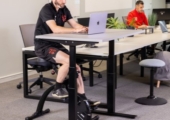April 29, 2024
Workers may have new rights to request flexible working, but let’s not celebrate too soon
 The new flexible working rules which came into force this month have been touted as a win – normalising and bringing clarity to the world of flexible work. However, in reality, they will do the very opposite. Under the new rules, workers now have the right to request flexible working from day one of employment. However, employers can take up to 2 whole months to respond to requests, and they do not have to be clear about their stance on flexible work beforehand. This is a huge oversight. Many workers rely on flexible working, and therefore need to know if arrangements are possible before they start new roles. Employers must be clear about their approach to flexible working from the outset, if we want to normalise flexibility in a way that allows both businesses and workers to benefit. More →
The new flexible working rules which came into force this month have been touted as a win – normalising and bringing clarity to the world of flexible work. However, in reality, they will do the very opposite. Under the new rules, workers now have the right to request flexible working from day one of employment. However, employers can take up to 2 whole months to respond to requests, and they do not have to be clear about their stance on flexible work beforehand. This is a huge oversight. Many workers rely on flexible working, and therefore need to know if arrangements are possible before they start new roles. Employers must be clear about their approach to flexible working from the outset, if we want to normalise flexibility in a way that allows both businesses and workers to benefit. More →




































April 29, 2024
Stress, anxiety and a beamish response to it all
by Mark Eltringham • Comment, Legal news, Workplace